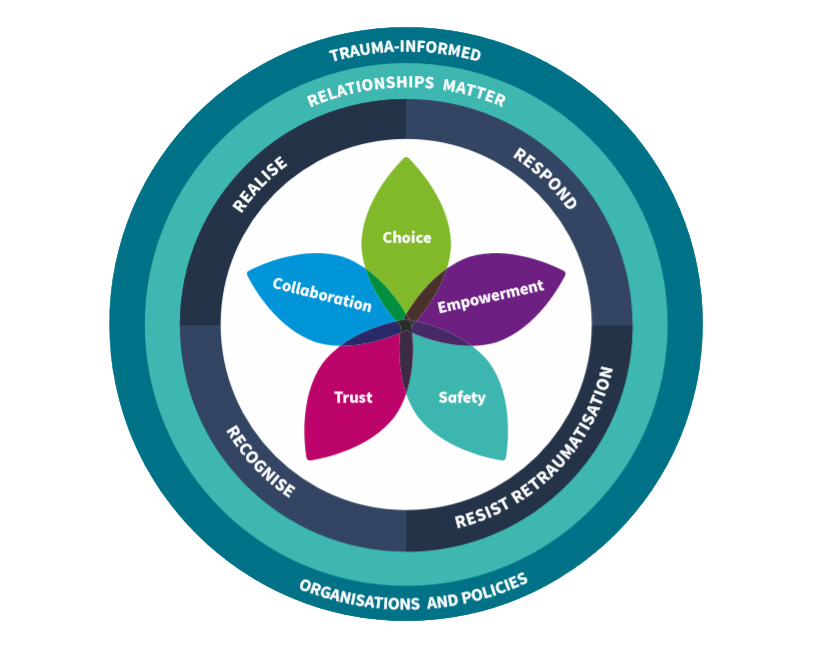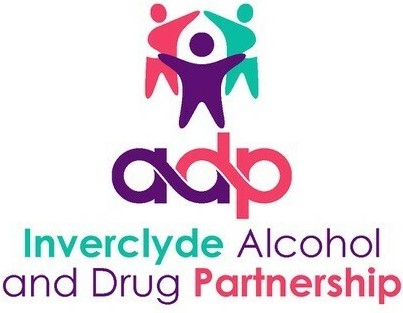Trauma Informed Practice
What is meant by psychological trauma?
The term psychological trauma can refer to a wide range of traumatic, abusive or neglectful events or series of events. This includes Adverse Childhood Experiences (ACEs) and trauma in adulthood that are experienced as being emotionally or physically harmful or life threatening. Whether an event(s) is traumatic depends not only on our individual experience of the event, but also how it negatively impacts on our emotional, social, spiritual and physical wellbeing. We are all affected by traumatic events in different ways.
In summary, psychological trauma can be understood in terms of the three E’s:
- The event
- How it is experienced
- Its effects.

What do we mean by “Trauma Informed Practice”?
Being ‘Trauma Informed’ means being able to recognise when someone may be affected by trauma and be able to respond appropriately. This includes working together to take this into account, responding in a way that supports recovery, is not causing further harm, and recognising and supporting people’s resilience.
The Inverclyde Alcohol and Drug Partnership want people within Inverclyde to feel included, nurtured, and safe. We will continue to provide a trauma-informed approach and will always search for new, different, improved approaches to preventing harm and supporting recovery, steered by evidence and voices of those who have lived and living experience.
Being 'Trauma-informed' is underpinned by the 5 R's
Realising how common the experience of trauma and adversity is
Recognising the different ways that trauma can affect people
Responding by taking account of the ways that can be affected by trauma to support
recovery
Opportunities to Resist re-traumatisation and offer a greater sense of choice and control empowerment, collaboration and safety with everyone that you have contact with
Recognising the central important of Relationships
What you should receive from a service if it is Trauma Informed
The organisation endeavours to create an environment where both staff and the individuals they assist feel secure, both physically and mentally. It is essential for both staff and clients to perceive the environment and discussions therein as safe, welcoming, and devoid of threats to their physical or psychological well-being.
This refers to the degree of transparency in organisational operations and decision-making, aiming to foster and sustain trustful relationships with clients, their families, staff, and other stakeholders within the organisation
Within the organisation, both clients and staff receive assistance in making informed decisions and choices, as well as in setting their own objectives. Acknowledging that providing choice can mitigate power differentials, the organisation ensures that clients and staff actively participate in the decision-making processes regarding organisational services, granting them meaningful voice and choice.
The organisation acknowledges the significance of both staff and clients’ experiences in overcoming obstacles and enhancing the overall system. Efforts are directed towards mitigating power differentials among various staff factions and between staff and clients. This is frequently enacted through the formal or informal utilisation of peer support and mutual self-help. It is understood that healing occurs within relational contexts and through the meaningful distribution of power and decision-making responsibilities
The organisation endeavours to distribute power and ensure that both clients and staff have significant input in decision-making processes, both at the individual and organisational levels. Every facet of the organisation, spanning management, operations, service provision, and staff development, is structured to foster empowerment for both staff and service recipients. Staff members find empowerment through organisational support mechanisms, while clients experience empowerment through services that prioritise person-centred approaches and trust in individuals’ resilience and capacity to heal and overcome trauma.






